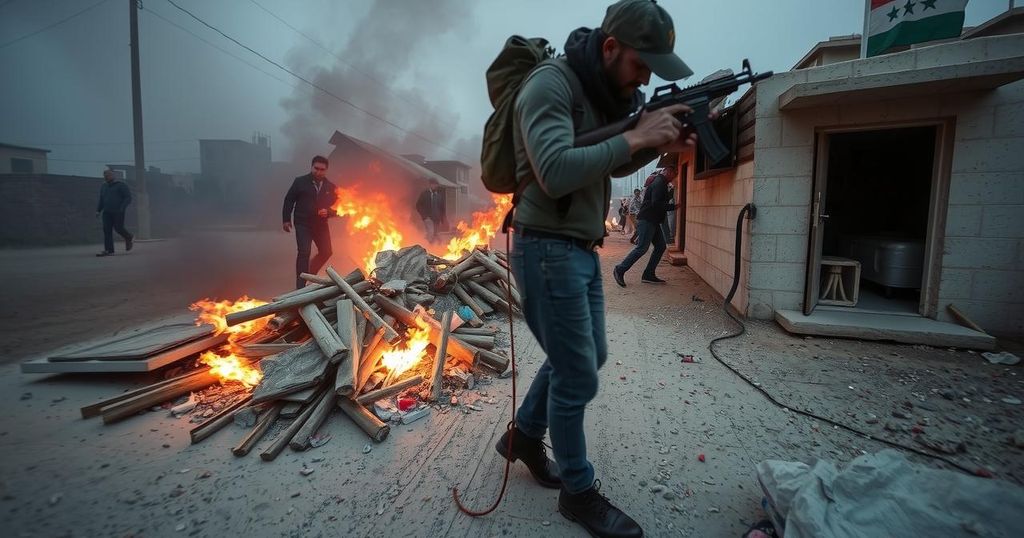Syria’s Civil War Resurgence: The Role of HTS and Geopolitical Dynamics

Syria’s civil war has escalated as HTS retook Aleppo with little resistance. Originally sparked by a democratic movement, the conflict saw international intervention leading to radicalization. Current geopolitical shifts involving Russia, Iran, and Turkey influence this latest insurgency, indicating changing dynamics in a prolonged conflict that has caused extensive humanitarian crises.
In recent developments, Syria’s civil war has reignited as the reformed rebel alliance, Hayat Tahrir al-Sham (HTS), launched a sweeping offensive across northwestern Syria, successfully retaking the city of Aleppo with minimal resistance. This resurgence comes after years of stagnation in the conflict, wherein the initial hopes for democratization following the Arab Spring have long been extinguished. The Syrian conflict, marked by the brutal suppression of a democratic movement and subsequent international intervention, has reached a pivotal juncture amid shifting geopolitical dynamics involving Russia, Iran, and the unfolding war in Ukraine.
Starting as a peaceful protest in 2011, the movement against President Assad rapidly escalated into an armed rebellion by 2012, enjoyed initial momentum against a weak military. However, key interventions from Russia, Iran, and Hezbollah turned the tide, leading to a protracted conflict characterized by regional and international neglect. Over the years, the failure of the West to provide adequate support left the armed factions fragmented and vulnerable to extremist ideologies, complicating the landscape further.
Currently, the incursion of HTS represents not only a resurgence of rebel activity but also highlights the intertwining of conflicts in the region, specifically relating to Turkey’s shifting political strategies, the struggles of Hezbollah, and the implications of the Russian invasion of Ukraine. With Russian military resources redirected and Israel dealing with Hezbollah’s weakened position at home, the balance of power appears precariously poised to shift again, raising critical questions about the future of Syria and international involvement therein.
Turkey’s role has been noted as pivotal, particularly with President Erdogan seeking to leverage the situation in anticipation of shifts in U.S. policy under a reelected Trump administration. As these dramatic developments unfold, the implications stretch far beyond Syria’s borders, reflecting broader regional instability and shifting allegiances in the wake of a ‘new world order’ as articulated by President Putin.
The Syrian civil war began amid a wave of protests during the Arab Spring in 2011, which were met with brutal repression from the Assad regime. The conflict escalated into a full-blown armed rebellion, drawing in various international actors over the years, including Russia and Iran, who supported Assad, while the U.S. and Gulf states offered limited support to the opposition. The war has resulted in significant humanitarian crises, with millions displaced and a rise in extremist groups like ISIS. The recent advances by HTS mark a notable change in the landscape after many years of stalemate, prompting speculation about the underlying geopolitical motives influencing this resurgence.
The recent reclamation of Aleppo by HTS signals a significant shift in Syria’s ongoing civil war, intertwining local conflicts with broader geopolitical considerations among Turkey, Russia, Iran, and Israel. As the regions navigate their respective challenges and alliances, the ramifications of these developments extend beyond Syria, indicating a potential reconfiguration of power relationships in the Middle East. The situation remains fluid, necessitating close observation of how international policies, particularly from the U.S., will respond to these evolving dynamics.
Original Source: abcnews.go.com







